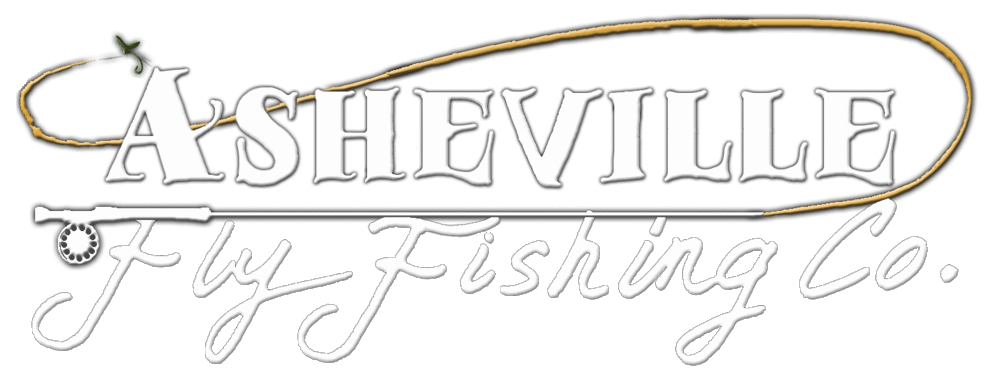I have been facilitating fly fishing leadership experiences in Asheville, NC with Asheville Fly Fishing Company since 2018. Leading up to the most recent event this past October, I was excited about the event but warned everyone that scenes from the movie "A River Runs Through It" do not adequately convey the mental and emotional challenges of the sport. Because of these challenges, it's my observation that fly fishing offers many learning opportunities for those who are open to them. For many (if not most) people, fishing is a matter of catching the biggest or the most fish. In a sense, it's an extension of a cultural meme: life is about competing, achieving, and winning. But then there are challenges.
Asheville Fly Fishing Company owner and lead guide, Galen Kipar helping a participant with fly tying.
We began our experience with tying flies instead of immediately fishing. I wanted to offer a different perspective on fly fishing. It's is a sport with numerous, subtle details, starting with the flies themselves. Noticing and becoming curious about those details can be the beginning of a learning journey. For a beginner, tying flies isn't easy.
In past training experiences, we've often talked about the comfort zone (i.e., where and when things are easy, predictable, and, frankly, boring). Fly tying was an experience that took everyone out of their comfort zone. Research by the Flow Research Collective suggests that activities that are slightly out of our comfort zones, but not so challenging that we're likely to fail or give up, are in the "sweet spot" for learning, growth, and "flow". I believe that fly tying was just such an experience for the participants. It was also my observation that practicing Gratitude helped the participants defuse the anxiety or frustration that might otherwise characterize this experience.
Focusing on Gratitude and experiencing fly tying set the context for the fly fishing experience itself. More than anything, it is my impression that fly tying elevated the level of respect and appreciation the participants had for their guides. While people's competitiveness and achievement orientation was evident, ultimately, catching the most or the biggest fish wasn't the most important result of the experience
A good guide can make all the difference in fly fishing, especially for a beginner. No matter how expert and experienced one is, the sport has an element of luck to it. There is a lot that the fisherman doesn't know or control in any fly fishing situation and an overwhelming number of variables to consider. The guide helps people by simplifying things, by making it clear what to focus on and how to execute certain steps in order to be fishing. A good guide is an empathetic listener, a skilled teacher, an encouraging coach, and a wise decision maker, in addition to being an expert in his or her craft.
By analogy, aren't these good qualities for anyone who "guides" others?
One of the many takeaways that came from the fly fishing experience was a method for regaining one's grateful attitude after dealing with frustration, negative self-talk, and other manifestations of our human "negativity bias". We had talked extensively about Gratitude the day before and the day of the event. We had even practiced breathing and re-centering ourselves prior to launching the boats on the river that morning. But then frustrating things started happening. We couldn't cast well. We tangled lines. We got our flies stuck in trees. We hooked fish and then lost them. As human beings, we can't help but react emotionally (and negatively) to situations and circumstances like these. And after we reacted with frustration and even anger, it became obvious that learning how to respond with respect, appreciation, and generosity is a worthwhile skill that nevertheless takes intentional practice.
Another lesson embedded in this experience is the realization that nature is always around us as we go about our activities (as evidenced by the photo above). Stopping periodically to breathe and just appreciate our natural surroundings can be surprisingly difficult, especially for ambitious, high achievers. That's why it's such an important lesson in fly fishing and, especially, in life.
Written by: Ron Nakamoto
True Wealth Mentorship







